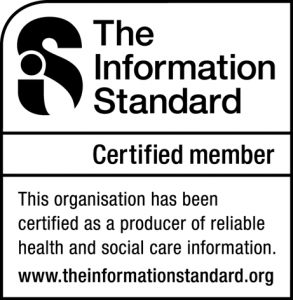Parvo Virus and Sickle Cell Disorder
We’re hearing from doctors that they are seeing a lot of cases of people with parvo virus being admitted to hospital for care. Parvo virus is more serious in people with sickle cell. We’ve broken down all the information about the virus and what to look out for if you have sickle cell disorder.
Parvovirus is a contagious virus that primarily affects children (also known as ‘slapped cheek syndrome’), but can also impact adults. While parvo virus infection in healthy adults often causes mild or asymptomatic illness, people with certain underlying health conditions, such as sickle cell disorder, may experience more severe symptoms and complications that require medical attention.
In adults with anaemia, particularly those with conditions such as sickle cell disorder or autoimmune disorders affecting red blood cell production, parvo virus infection can lead to a condition known as aplastic crisis. During an aplastic crisis, the virus infects and destroys the body’s red blood cell precursors in the bone marrow, resulting in a sudden and severe drop in red blood cell count. This makes anaemia symptoms much worse, and results in profound fatigue, weakness, and increased susceptibility to infections.
Additionally, the combination of parvo virus infection and sickle cell disorder can increase the risk of developing acute chest syndrome, a potentially life-threatening complication characterised by chest pain, shortness of breath, and ‘pulmonary infiltrates’ – substances other than air entering the lungs.
Parvo virus infection in individuals with sickle cell disorder may also lead to a hyper-haemolytic crisis – which is a rapid destruction of sickle cells, leading to a further decline in haemoglobin levels and worsening anaemia. This can require urgent medical intervention, including blood transfusions and supportive care, to stabilise the patient’s condition and prevent complications.
Given the potential for severe complications, people with sickle cell disorder who develop symptoms of parvo virus infection should seek immediate medical attention. Symptoms include:
- Fever
- Headache
- Cough
- Sore throat
- Rashes
- Joint pain
Hospitalisation may be required for close monitoring, intravenous hydration, oxygen therapy, and supportive care. Prompt diagnosis and management of parvo virus infection in people with sickle cell disorder is important to reduce the risk of complications and ensure the best outcomes.
Doctors have seen an increase in parvo virus cases in hospital this spring and summer. To reduce the risk of spreading the virus, and protect those with sickle cell, the NHS gives the following advice:
- wash your hands often with water and soap
- use tissues to trap germs when you cough or sneeze
- bin used tissues as quickly as possible
Edited by Medical Advisors:
Rachel Kesse-Adu Consultant Haematologist, Guy’s and St Thomas’ NHS Foundation Trust.
Professor David Rees, Paediatric Haematologist, King’s College London and King’s College Hospital.
Download a PDF of this advice here : Parvo Virus and Sickle Cell Disorder





